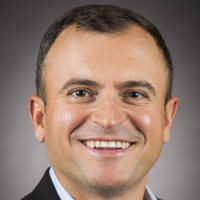Legal Culture and Anti-Corruption Reform: Preliminary Findings of National Survey and Focus Groups Data
As Serbia, Macedonia and Kosovo aim to harmonize their laws with the European Union, little is known about their legal culture and the extent to which European legal transfers are accepted in these countries. Using nationally representative surveys, focus groups, and in-depth interviews in Serbia, Macedonia and Kosovo, this research project maps legal cultures in these countries and investigates the limits of anti-corruption reform.
Elton Skendaj, Visiting Research Fellow at the Kroc Institute for International Peace Studies of the University of Notre Dame, will present preliminary findings from the surveys and focus groups concerning the legal cultures in these countries, public and minority perceptions of corruption and anti-corruption reform, and will assess which actors are considered the drivers of anti-corruption reform.
Twice a fellow at the Wilson Center, Elton Skendaj holds a Ph.D. in government from Cornell University and has taught at various universities in the USA and Albania. He has also been a trainer with international organizations, including the United Nations and the US Institute for Peace. Skendaj has previously developed and implemented a peace education joint project with the UN Department for Disarmament Affairs and the Hague Appeal for Peace. His book manuscript (under review at the Wilson Center Press and Cornell University Press) examines the role of international actors in building effective state bureaucracies and democratic institutions in post-war societies. His current project with the Norwegian research institute FAFO investigates anti-corruption reforms in the Western Balkans. In addition, Skendaj serves as a consultant with USAID and is working on an article about how international organizations learn to improve their effectiveness in the areas of rule of law, democratization, and peacebuilding.
Speaker

Gladdys Muir Associate Professor of Peace Studies, Manchester University
Hosted By

Global Europe Program
The Global Europe Program is focused on Europe’s capabilities, and how it engages on critical global issues. We investigate European approaches to critical global issues. We examine Europe’s relations with Russia and Eurasia, China and the Indo-Pacific, the Middle East and Africa. Our initiatives include “Ukraine in Europe”—an examination of what it will take to make Ukraine’s European future a reality. But we also examine the role of NATO, the European Union and the OSCE, Europe’s energy security, transatlantic trade disputes, and challenges to democracy. The Global Europe Program’s staff, scholars-in-residence, and Global Fellows participate in seminars, policy study groups, and international conferences to provide analytical recommendations to policy makers and the media. Read more
